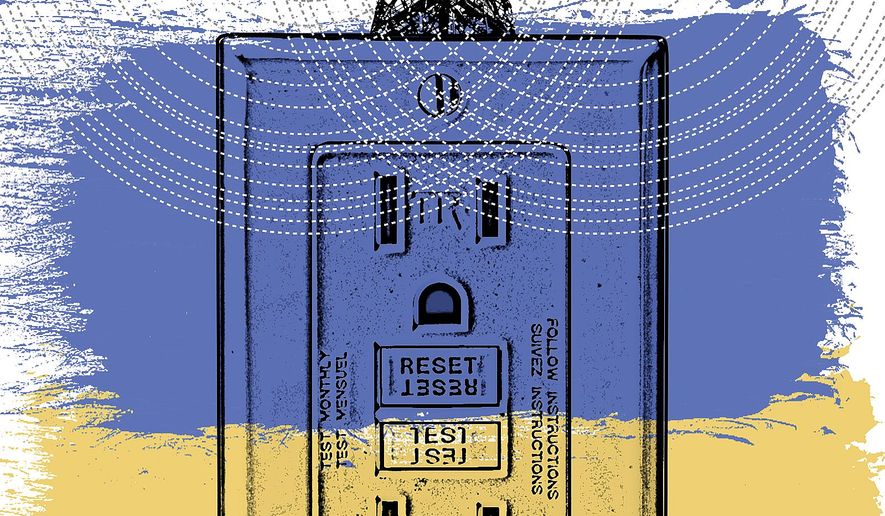OPINION:
Russia is attempting to weaponize the way people share information. The West is only now understanding what this new form of warfare is and how to defeat it.
Long before Russia intervened in the U.S. presidential election last year and in the French elections this year, Ukrainian lawmakers were sounding the alarm over Russian interference. The Ukrainian term for Russian cyberattacks is “hybrid warfare” and the Ukrainian government finally took action against it this month.
Ukrainian President Petro Poroshenko — following a decision by the National Security and Defense Council — banned Russian social media sites and propaganda outlets that were masquerading as legitimate news sources. The decision is part of a larger set of sanctions against Russia designed to restore nothing short of the cyber sovereignty of Ukraine.
The ban affects Russia’s equivalents of Facebook called Vkontakte (aka VK) Odnoklassniki and Yandex. These sites have been routinely monitored and mined for data by Russia’s spy agency, the Federal Security Service. The danger to Ukrainians from this activity cannot be overstated. Ukraine has long been a testing ground for new types of Russian aggression. In Ukraine, Russia has employed both physical and psychological methods. The goal: to sew discord and destabilize Ukraine.
During Russia’s 2014 invasion of Ukraine’s Crimean Peninsula and the ongoing conflict in East Ukraine, Russia has marshaled a smorgasbord of propaganda techniques and cyberattacks. Using personal data gleaned by mining the Vkontakte and Odnoklassniki social-media platforms, it has targeted ethnic Russians with carefully tailored messages in an attempt to ignite ethnic tensions. In addition, a pro-Russian terrorist group called the Somalia Battalion, which has fought Ukrainian troops in eastern Ukraine, used Vkontakte to recruit unwitting volunteers into military service.
More recently, an online phenomenon known as “Blue Whale” that encourages children and teens to commit suicide was propagated and promoted by some of these same Russian outlets. On Vkontakte, “Blue Whale” looks like an online game, but it has caused many, tragic deaths. Worse yet, the Russians’ ability to target young people has undoubtedly been bolstered by the Kremlin’s ability to collect and analyze personal data from Ukrainian users of Russian based social media sites, such as Vkontakte and Odnoklassniki.
Russian media outlets such as Russia Today, the television network, have also been blacked out in Ukraine. RT has been the cornerstone of recent Russian propaganda blitzes. Russia uses RT and similar television channels to spread false information and “fake news.” Democratically elected Ukrainian leaders are routinely referred to as the “Kiev junta” in power “illegitimately.” The stations are also fond of describing U.S. and Ukrainian policy as similar to that of Nazi Germany.
Ukraine is happy to push back against such dangerous lies. Its national security is at stake.
To be clear, Ukraine continues to uphold the rights of freedom of speech and freedom of expression. But those freedoms don’t apply in this case. No one has the right to spread falsehoods nor can anyone collect personal data to promote them. Even the director of Ukraine’s Mohyla School of Journalism, Yevhen Fedchenko, defended the Russian media shutdowns as “the greatest contribution to the protection of information sovereignty of Ukraine ever.”
The North Atlantic Treaty Organization (NATO) came to a similar conclusion: “The Ukrainian government has made clear that this decree is an issue of security, not one of freedom of speech.” Neither the United Nations nor any government in the West has spoken out against Ukraine’s actions.
Critics from Russia and its allies will no doubt continue to compare Ukraine to North Korea and its far-reaching media controls. But they miss the real comparison to South Korea, which routinely blocks the propaganda websites peddled by its northern neighbor. They also surely will neglect to mention that there is one easy way for Russia to have the sanctions removed. All it has to do is end its war with Ukraine and withdraw its soldiers from Ukrainian soil.
• Dmytro Shymkiv is the deputy head of the presidential administration of Ukraine and secretary of the National Reform Council.




Please read our comment policy before commenting.